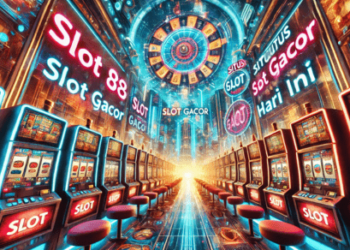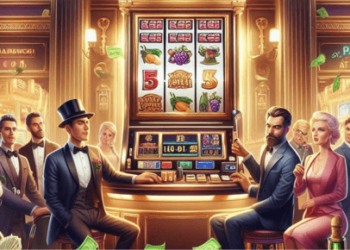The entertainment industry has long been fascinated with the world of escorts, portraying them in various ways across films and television. From glamorous and empowered characters to those facing personal struggles, media depictions shape how society perceives this line of work. While some portrayals lean toward realism, others rely on exaggerated tropes, reinforcing stereotypes. Let’s take a closer look at how popular culture has represented escorts over the years and the impact these depictions have had on public opinion.
The Evolution of Escorts in Film and TV
Historically, Hollywood and international cinema have taken different approaches to depicting escorts. In earlier films, escorts were often cast as tragic figures, reinforcing the notion that their profession was linked to suffering and exploitation. However, as storytelling evolved, many films and TV series began presenting more nuanced and multifaceted characters, some of whom were intelligent, independent, and in control of their lives.
One of the earliest examples of an escort character in film is Belle de Jour (1967), starring Catherine Deneuve. The film explores a married woman’s decision to work as an escort in secret, delving into themes of desire and self-discovery. Another classic, Pretty Woman (1990), presented a romanticized version of escorting, with Julia Roberts’ character finding love and a fresh start. While unrealistic, this portrayal contributed to a shift in audience perception, showing escorts as more than just victims.
More recent portrayals, such as Secret Diary of a Call Girl (2007–2011), offer a more modern take, focusing on an escort’s independence and professional choices. The series, based on a real-life blog, provided insight into the complexities of the industry without solely framing it as exploitative or dangerous.
The Glamorous and the Gritty: Contrasting Depictions
Films and TV shows tend to fall into two categories when depicting escorts: the glamorous and the gritty. On one end, some movies portray escorting as a luxurious, empowering career where women (and men) operate on their own terms. Characters are often well-dressed, financially successful, and selective about their clientele. Examples include The Girlfriend Experience (2009), which later became a TV series, presenting a high-end escort navigating relationships and business with precision.
On the other hand, grittier portrayals highlight the darker aspects of the industry, such as exploitation, violence, and addiction. Shows like The Deuce (2017–2019) explore the historical realities of sex work in 1970s New York, depicting the dangers and societal stigma that many escorts face. While these portrayals can be more realistic, they often focus heavily on hardship, rarely showcasing positive or neutral experiences.
The Influence of Cultural and Geographic Settings
Different cultures portray escorts in unique ways, shaped by local attitudes and societal norms. European cinema often presents escorting with a more open-minded perspective, focusing on personal agency rather than victimhood. In contrast, American films tend to lean toward either glamorization or cautionary tales.
For example, in Italy, the escort industry is often associated with sophistication and discretion. Films set in cities like Milan and Rome reflect this elegance, sometimes portraying escorts as high-class professionals who move in elite social circles. This aligns with the real-life presence of escorts milan, who cater to a wealthy clientele in one of Europe’s fashion capitals.
Meanwhile, in Germany and the Netherlands, where sex work is legal and regulated, media portrayals often include elements of empowerment and business acumen. Films like Lola (1981) depict escorts as business-savvy individuals rather than victims. Similarly, in France, where the industry has a long history, cinema often showcases escorting as an art form, blending sensuality with storytelling.
In contrast, films set in more conservative regions tend to highlight moral dilemmas and dangers. For instance, depictions of escort rom in Italian films may vary depending on whether they aim to showcase the city’s historical prestige or its underground nightlife.
The Role of Escorts in Storytelling
Why do filmmakers and TV producers repeatedly explore the escort industry? One reason is that the profession offers a mix of intrigue, emotion, and drama. Escorts often serve as a mirror for societal themes—power dynamics, personal autonomy, and economic struggles. Their presence in a story allows for complex character development, revealing the nuances of human relationships.
Additionally, escort characters often challenge traditional gender roles. Many portrayals feature strong, self-reliant women who navigate power structures with intelligence. These characters push back against outdated notions of morality and control, offering viewers a different perspective on personal choice and independence.
Breaking Stereotypes and Embracing Realism
While many films and TV shows still rely on clichés, recent productions are making an effort to break stereotypes. Documentaries and independent films, in particular, provide a platform for real stories, showcasing the experiences of those in the industry without sensationalism.
For example, the film Cam (2018) delves into the life of a cam girl, highlighting both the empowerment and vulnerabilities that come with the profession. Similarly, more mainstream series are starting to include escort characters as part of broader storylines rather than reducing them to mere plot devices.
Nonetheless, there is still work to be done in presenting diverse and accurate portrayals. Many media representations fail to acknowledge that escorting exists in various forms, from luxury companions in major cities to those navigating more challenging conditions. For instance, in Florence, a city known for its art and tourism, huren florenz are part of a broader service industry that often intersects with travel and nightlife.
Conclusion
The portrayal of escorts in film and TV has evolved significantly, reflecting changing societal attitudes. While some media continue to rely on outdated stereotypes, others are moving toward more balanced and authentic representations. By presenting nuanced stories, filmmakers and writers can challenge misconceptions, offering audiences a deeper understanding of the complexities within the escort industry. As cultural attitudes shift, future portrayals may continue to break down stigma and showcase the diverse realities of those working in the field.










